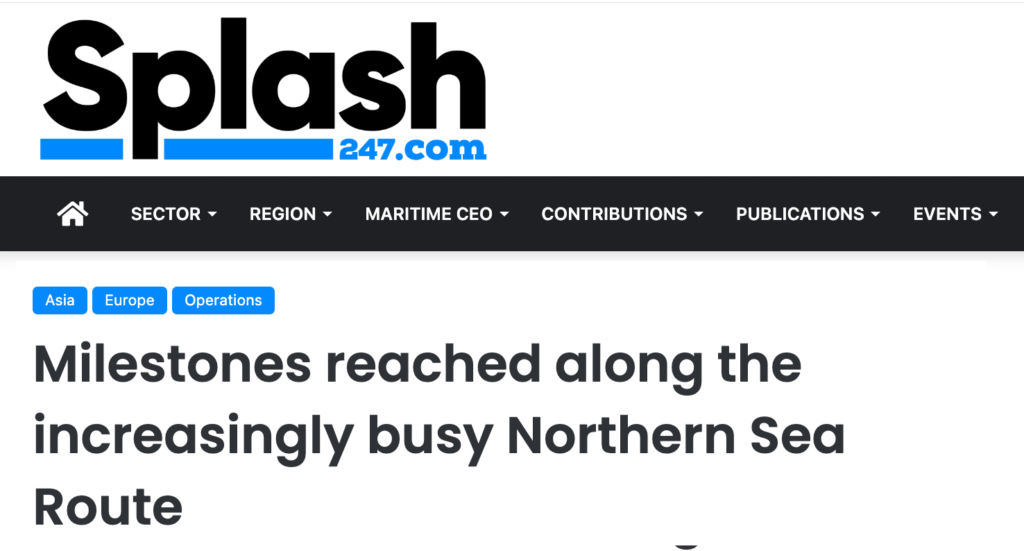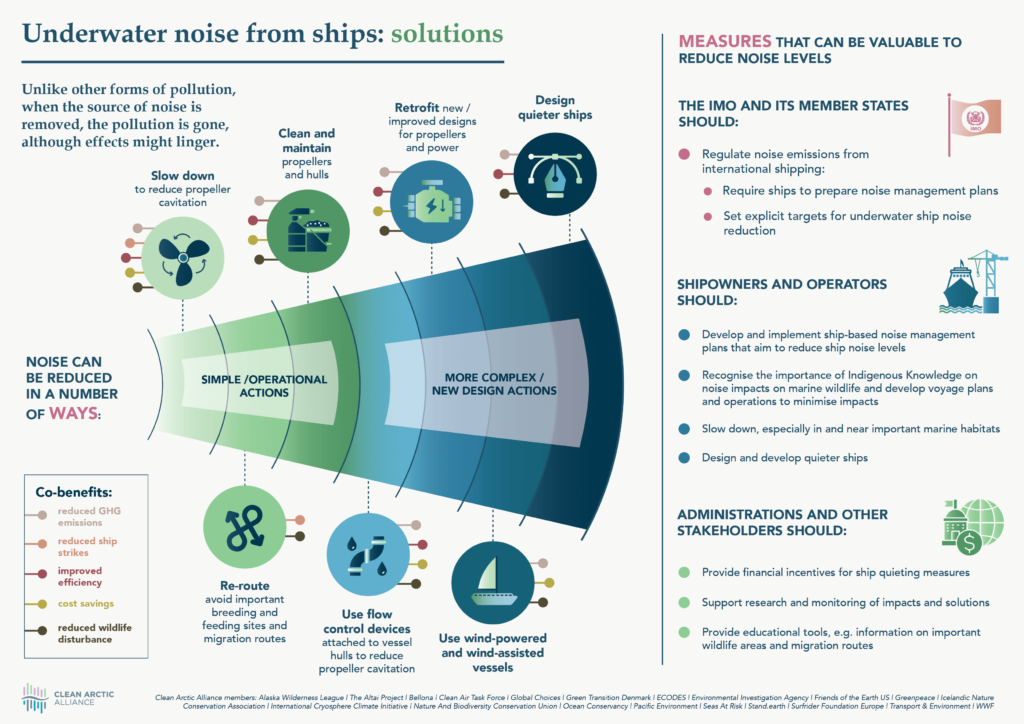Splash 24/7: Milestones reached along the increasingly busy Northern Sea Route

“The rapid expansion of Arctic shipping traffic using fossil fuels and opening Arctic Sea routes to year-round navigation for transporting fossil fuels heightens the risk of spills and leakages, increases underwater noise pollution, and destroys ice ecosystems and habitats of ice-dependent species such as seals and polar bears. It also poses a significant threat to […]
IMO Must Take Opportunity To Reduce Underwater Noise By Transitioning to Cleaner Ships

As a workshop exploring the relationship between energy efficiency and underwater radiated noise from shipping opens today at the International Maritime Organization (IMO) in London, the Clean Arctic Alliance called for international action to support the transition to ships that are both more efficient and quieter as efforts to decarbonise the global shipping fleet are stepped-up.

